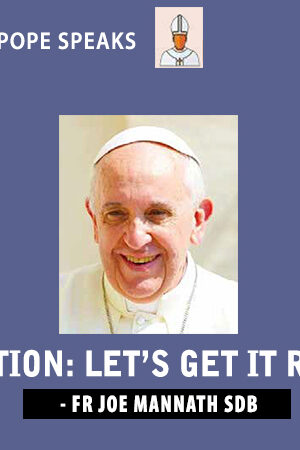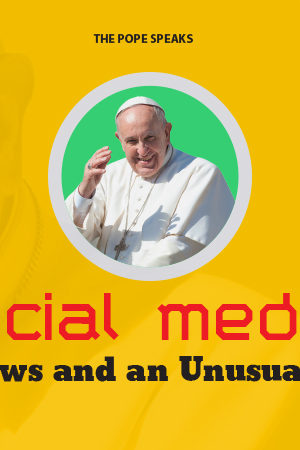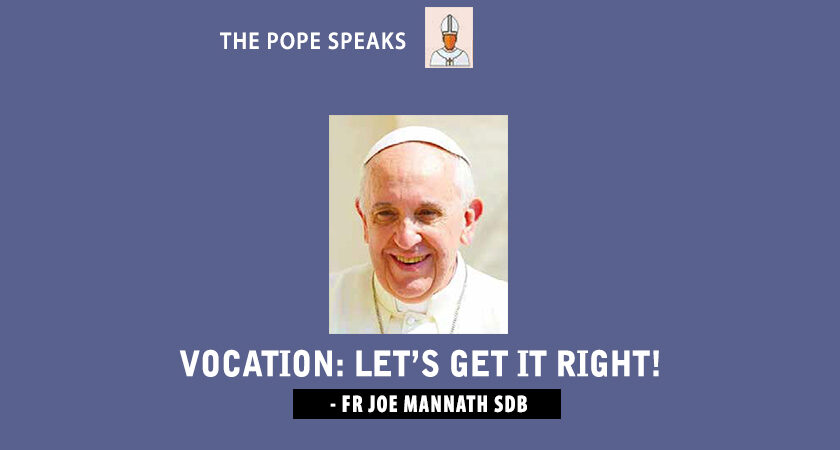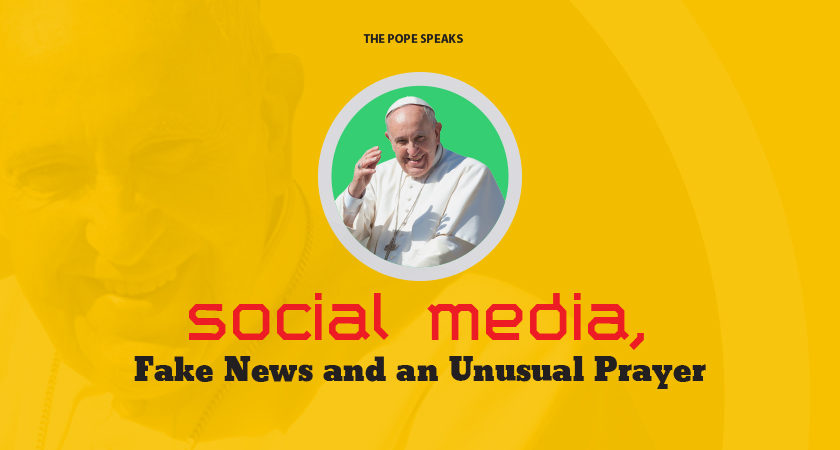On May 8th, 2022, the Church kept the “World Day of Prayer for Vocations.” On this occasion, Pope Francis gave a message on “Vocation,” which we will do well to listen to and take to heart. For those of us who have not read the whole document, here is a short presentation of its main points. I shall give direct quotes from the document in italics and inverted commas. I am presenting this short document under twelves sub-headings, to make the message clearer.
- Purpose: The purpose the message—and of promoting “vocations”—is not to increase the number of priests and religious, but to BUILD THE HUMAN FAMILY: “We sense the urgent need to journey together, cultivating the spirit of listening, participation and sharing. Together with all men and women of good will, we want to help build the human family, heal its wounds and guide it to a better future.” In fact, the subtitle of the document is: “Called to Build the Human Family.” So, if I just stay in religious life or priesthood, or try to get more candidates for these groups, but do not build the human family where I am, I am defeating the very purpose of vocation.
- Context: The Synodal Church. Coming together and healing the wounds of humanity is the main purpose of a vocation. Synodality, as the Pope has been emphasizing repeatedly, is not about a meeting of bishops or about creating a new document, but to become what we are meant to be as church: A mutually listening, caring family. “Synodality, journeying together, is a vocation fundamental to the Church. Only against this horizon is it possible to discern and esteem the various vocations, charisms and ministries.” The mission of the Church is to evangelize, that is, to be good news, to bring the Good News of God’s love to everyone. All the baptized have the same mission. In fact, the message insists that there should not be a separation of clergy and laity: “We must beware of the mentality that would separate priests and laity, considering the former as protagonists and the latter as executors.” We need to move away from mentality of bishops and priests taking decisions and the laity being expected simply to do what the clergy decide. No, all of us are in this together.
Fr Joe Mannath SDB
To read the entire article, click Subscribe



